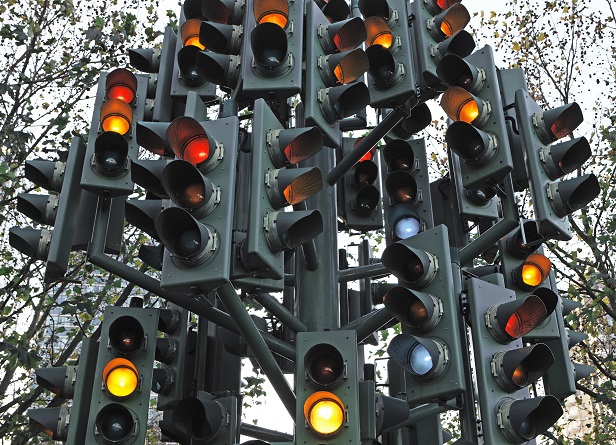Formula One races to resolve legacy issues around competition law
Published on 23rd June 2022
The competitiveness on and off the track of the world's most watched motorsport remains a focus for its global audience

One of the world's most popular forms of motorsport, Formula One began in 1950 but has gained a wider appeal over the last four years due to Netflix's popular Drive to Survive programme. The sport drew a cumulative TV audience of 1.55 billion in 2021 (up 4% from 2020) and, in terms of follower growth, it was the fastest-growing major sports league last year.
Amid this increased popularity, the sport still has past and not yet fully resolved competition law issues. Will the increased attention help bring traction to these and race them to the top of antitrust enforcers' agendas? While there are no known ongoing investigations into competition law and Formula One, the sport provides various areas of interest in its financial as well as sporting structures.
The historical track record
Formula One has been in the competition law spotlight previously. In 2014 the European Commission was lobbied by Anneliese Dodds (a UK member of the European Parliament), who requested EU competition commissioner Margrethe Vestager to launch an investigation over her "grave concerns" about the way in which Formula One was being run. Dodds was the first to officially put forward a notion that the "agreement made between F1 and the European Union about competition" was not being adhered to. At that time, smaller teams were feeling particularly squeezed by the unequal pay-outs made by Formula One, with an estimated 60% of the $900 million paid out by the sport going to a subset of leading teams comprising McLaren, Ferrari, Red Bull, Mercedes, and Williams (which, as a group, also controlled much of the championship's decision-making).
This 2015 request came alongside the "rebellion" of three smaller teams (Sauber, Force India and Lotus), which were thought to have given the Commission a dossier of their complaints in June 2015. A letter from Force India, Sauber, and Lotus, signed by Force India's deputy team principal Bob Fernley, suggested that the group in control were a "questionable cartel", which controlled "both the governance of Formula One and apparently, the distribution of FOM [Formula One Management] Funds". Bernie Ecclestone, the CEO of the Formula One Group (FOG), which governs the sport, rejected these claims.
Later that same year, Force India and Sauber lodged an official complaint with the Commission, focusing on the unequal payments made by F1 and challenging its rule-making powers and privileges. The complaint alleged that the "unfair side payments put the independent teams at a perpetual sporting and economic disadvantage" and argued that "by locking in a permanent advantage for a select few teams, the sport has been gravely undermined". The complainants alleged that FOG held a dominant position on the market for participation in F1 and the commercial exploitation of the sport’s rights. In addition, they claimed that, as a dominant entity, FOG was bound by a “special responsibility” to wield its powers fairly and that its actions were constative of an abuse of dominance contrary to Article 102 of the Treaty on the Functioning of the European Union (TFEU). The complaint stipulated that the network of bilateral agreements between FOG and each of the five teams (as listed above) forming F1's "strategy group" constituted a further breach of EU competition rules against restrictive business practices.
In January 2017, the European Parliament recommended that the Commission should investigate Formula One. Dodds, who continued to be at the front of the drive to investigate Formula One, stated that it was important for the sport to not "become increasingly less competitive", citing issues that included prize money, tax rates, and F1's recent sale to Liberty Media.
Ultimately, Force India and Sauber withdrew their complaint with the Commission in January 2018. This followed the new owners, who had taken control from Ecclestone, agreeing to make changes to Formula One and its governance. A joint statement from the two teams stated that the approach of Liberty Media and its CEO Chase Carey had "brought a new culture of transparency to the sport and illustrate[d] willingness to debate fundamental issues such as the distribution of the prize fund monies", while at the same time noting that "the concerns leading to the compliant were fully justified".
Fresh issues ahead?
While there is no known active investigation by the Commission or other regulatory body regarding the operation of Formula One, there are several aspects of the sport that potentially raise competition law issues.
There are new rules setting out the terms on which new teams can join the Formula 1 competition. These are set out in the January 2021 Concorde Agreement, which will run until at least 2025. While this Agreement has not been published in full, some information has been released through various channels, including Liberty Media's 2021 annual report.
The Agreement imposes an entry fee on any new teams joining Formula One. This is currently set at $200 million, which can be varied with approval of the existing teams and may also be increased in line with inflation. The money is to be shared across the 10 existing teams. This fee sets a high barrier to entry and is of benefit to the teams already in the system, both in terms of prospective finances and certainty. At the same time, the fee makes it challenging for new teams to join the competition. As Formula One is a closed competition (that is, there is no promotion or relegation system), the high entry fee may have the effect of capping the number of teams at 10, with new teams only joining when they are in a position to buy an existing team out. While different in details, this echoes the originally envisaged closed structure of the widely contested European Super League project, which is currently being litigated on competition law grounds before the Court of Justice of the European Union.
However, the entry fee has been defended by Zak Brown, the CEO of McLaren, as being worth paying for a new team due to the "franchise value growth" in the sport resulting in companies getting "that £200m back and then some at a later date". Brown and others have highlighted the uncomfortable situation that Formula One has experienced in the past where teams have announced their intention to join Formula One only to renege before fielding any cars in the competition. Prior to the introduction of the cap, a deposit was required from a new team, which was subsequently paid back to the team over time; but this did not prevent issues from arising. No new teams have joined since the Concorde Agreement came into force in early 2021 – and it remains to be seen what impact in the longer term it will have on competition in the sport.
Another potential area of interest concerns the bonuses that are paid to the teams. While some payments are based on the final position of a team in the Constructors Championship, others are paid regardless of a team's success. Although these may not cause competition law issues, it could be argued that they impact the sporting competition of Formula One by introducing a playing field that is not level and helping the more established teams retain their dominance over the rest of the field.
Osborne Clarke comment
Formula One continues to entertain fans across the world, growing in popularity in Europe, the United States and elsewhere. It seems likely that the sport will continue to change, not least as a result of the budget cap that was introduced for 2021. The cap, set at $145 million for the 2021 season but falling to $135 million by 2023, is designed to reduce the financial gulf between the biggest and smallest teams on the grid. For context, Mercedes, Red Bull Racing and Ferrari's spending had increased to over $400 million per year, and so the budget caps should have a significant impact in reducing the gap between the biggest and smallest spenders in Formula One and making the race for a pole position more competitive.
However, the budget cap is unlikely to level the playing field entirely, as it will not take into account spending on areas including driver salaries, engines, and marketing, as well as the pre-existing differences in facilities, infrastructure, knowledge and personnel. It is also questionable if it can eliminate differences in payments made to teams, although these are reportedly more equal than under previous, pre-2021, Concorde Agreements.
The competitiveness of Formula One, both on and off the track, will remain of interest to fans across the world and should be one to watch for those with an interest in sport and competition.
This article was produced with the assistance of Elliot Pawley, Trainee Solicitor.




